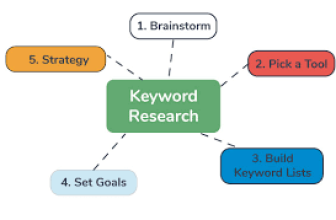Importance of preparing for WFH interviews

What Are the Questions for WFH Interviews?
Introduction
The shift to remote work has revolutionized how companies operate, creating unique challenges and opportunities for both employers and employees. As work-from-home (WFH) roles become the norm, interviews for these positions demand a specialized approach. Preparing for a WFH interview involves understanding what employers seek and aligning your answers with their expectations.
Key Focus Areas for WFH Interviews
Employers typically explore three main areas during a WFH interview: technical skills, self-management, and communication abilities. Let’s break these down:
- Technical Skills: Can you use the necessary tools and software?
- Self-Management: Are you capable of staying productive without supervision?
- Communication: How effectively can you convey ideas and collaborate remotely?
Addressing these areas will help both candidates and recruiters identify a strong fit for remote roles.
Essential Questions to Test Technical Proficiency
When hiring for WFH roles, assessing a candidate’s technical expertise is crucial. Key questions include:
What tools and software are you proficient in for this role?
- This identifies your familiarity with essential platforms like Slack, Zoom, or Asana.
How do you troubleshoot technical issues at home?
- Employers want to ensure you can manage basic IT hiccups.
Describe a technical problem you solved remotely.
- This reveals your problem-solving skills in action.
Technical challenges are inevitable in remote work, making readiness a top priority.
Questions to Understand Time Management Skills
Time management is a cornerstone of WFH success. Employers may ask:
How do you manage distractions at home?
- Explain strategies like setting boundaries or using productivity tools.
Describe a time you successfully balanced multiple deadlines remotely.
- This demonstrates your ability to handle competing priorities.
What techniques do you use to stay organized?
- Mention methods like calendar blocking or task management apps.
Being able to manage your time effectively builds trust with your employer.
Remote Communication and Collaboration Questions
Seamless communication is vital for remote teams. Here are common interview questions:
Which communication tools do you use most effectively?
- Think email, video conferencing, and instant messaging apps.
How do you ensure clarity in written communication?
- Share your approach to writing concise, actionable emails or reports.
Can you provide an example of successful remote collaboration?
- Highlight teamwork in completing a challenging project.
Strong communication skills can make or break a WFH setup.
Continue Generating?
You said:
ChatGPT said:
Behavioral Questions for WFH Interviews
Behavioral questions are key to uncovering how candidates handle remote work challenges. Employers often ask:
Describe a situation where you resolved a conflict in a remote team.
- Showcase your ability to mediate disagreements without in-person communication.
How do you stay motivated when working alone?
- Highlight strategies like setting personal goals or creating a structured routine.
Tell me about a time you handled a miscommunication in a remote setting.
- Provide an example of how you clarified misunderstandings effectively.
Behavioral questions focus on past actions as indicators of future performance, especially in remote contexts.
Cultural Fit and Adaptability in Remote Work
Company culture plays a significant role in remote work success. To gauge fit, interviewers might ask:
How do you align your work style with the company’s values?
- Discuss how you adapt to different organizational cultures.
Can you share an example of adjusting to unexpected changes in a remote job?
- Highlight your flexibility and quick thinking.
What motivates you in a virtual team environment?
- Mention factors like clear communication, autonomy, or collaborative achievements.
Adaptability ensures long-term success in a virtual workplace.
Assessing Technical Readiness for WFH
A candidate’s technical readiness can make or break their WFH productivity. Key questions include:
What is your home office setup like?
- Provide details about your workspace, equipment, and internet connectivity.
How do you handle technical challenges without immediate IT support?
- Discuss how you troubleshoot problems independently or seek online solutions.
Do you have backup plans for power or internet outages?
- Highlight preparations such as mobile hotspots or alternate work locations.
Technical preparedness reflects a candidate’s commitment to reliable performance.
Scenario-Based Questions for WFH Situations
Scenario-based questions simulate real-life challenges you might face in a remote role. Examples include:
Imagine a team member isn’t responding to messages about a critical deadline. What would you do?
- Share your approach to maintaining professionalism and resolving the issue.
How would you prioritize tasks if several urgent requests came in simultaneously?
- Explain methods like prioritization matrices or consulting stakeholders.
What steps would you take if you experienced a prolonged technical outage during work hours?
- Demonstrate proactive planning and communication skills.
Such scenarios help interviewers assess your problem-solving and critical-thinking abilities.
Soft Skills Questions for Remote Work
Soft skills are just as crucial as technical ones in a WFH setting. Employers may ask:
How do you maintain self-discipline without direct supervision?
- Discuss techniques like setting personal deadlines or using productivity apps.
How do you build and maintain relationships in a virtual team?
- Share examples of using regular check-ins, team-building activities, or proactive communication.
What’s your approach to managing stress while working remotely?
- Highlight coping strategies like mindfulness, exercise, or time management.
Strong soft skills can significantly enhance team dynamics and individual success.
Practical Tips for Candidates Preparing for WFH Interviews
To ace a WFH interview, preparation is key. Here’s how candidates can shine:
Research the company’s remote work policies and tools.
- Understand the technologies and practices they prioritize.
Prepare real-life examples.
- Use the STAR method (Situation, Task, Action, Result) to structure responses.
Test your tech setup beforehand.
- Ensure your internet, webcam, and audio equipment are in top condition.
Confidence and preparation go a long way in standing out during the interview.
Tips for Employers Conducting WFH Interviews
Employers also need strategies to make interviews more effective. Suggestions include:
Create a structured interview template.
- Divide the interview into sections: technical, behavioral, and scenario-based questions.
Test practical skills live.
- Conduct mock tasks or ask candidates to navigate relevant tools.
Evaluate cultural fit.
- Use open-ended questions to understand the candidate’s values and adaptability.
A well-rounded interview process ensures better hiring decisions for remote roles.
Common Mistakes to Avoid in WFH Interviews
Both candidates and employers should steer clear of these pitfalls:
Candidates:
- Overlooking technical readiness.
- Failing to prepare examples of past experiences.
Employers:
- Neglecting to test communication skills.
- Relying solely on theoretical questions.
Being mindful of these common missteps ensures a smoother interview process.
How to Ace a WFH Interview as a Candidate
Want to leave a lasting impression? Follow these steps:
Dress professionally and set up a distraction-free background.
- First impressions count, even virtually.
Communicate clearly and confidently.
- Maintain eye contact with the camera and pause to listen actively.
Follow up with a thank-you email.
- Reaffirm your interest and summarize key points from the discussion.
Success in WFH interviews is all about showcasing readiness and enthusiasm.
Conclusion
Work-from-home interviews require a tailored approach to assess skills, adaptability, and communication. Both candidates and employers benefit from thorough preparation and a focus on remote-specific challenges. By addressing key areas like technical readiness, time management, and soft skills, you can ensure a successful hiring process for remote roles.
FAQs
What’s the best way to prepare for a WFH interview?
- Research the company, rehearse common questions, and test your tech setup.
What tools are commonly used for remote work?
- Platforms like Zoom, Slack, Asana, and Trello are widely used.
How do I demonstrate communication skills in a WFH interview?
- Provide examples of past collaborations and use clear, concise language during the interview.
What should employers prioritize in WFH interviews?
- A balance of technical skills, cultural fit, and communication abilities.
Are scenario-based questions effective for WFH interviews?
- Yes, they reveal practical problem-solving and decision-making skills.








